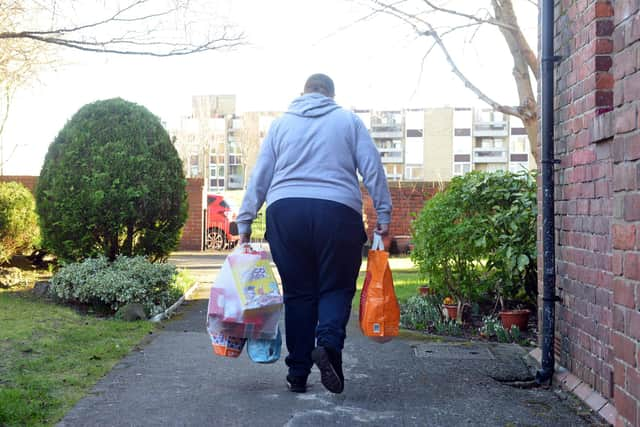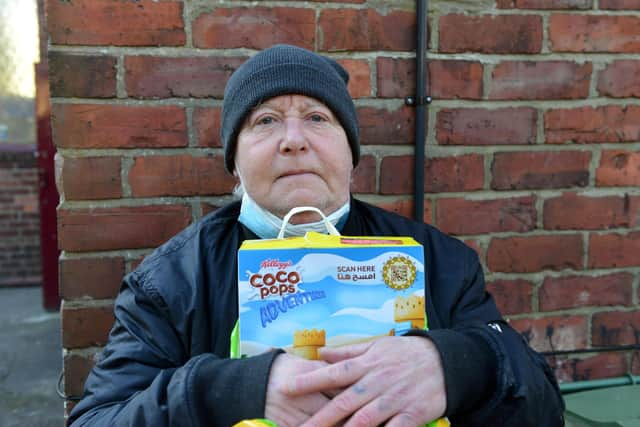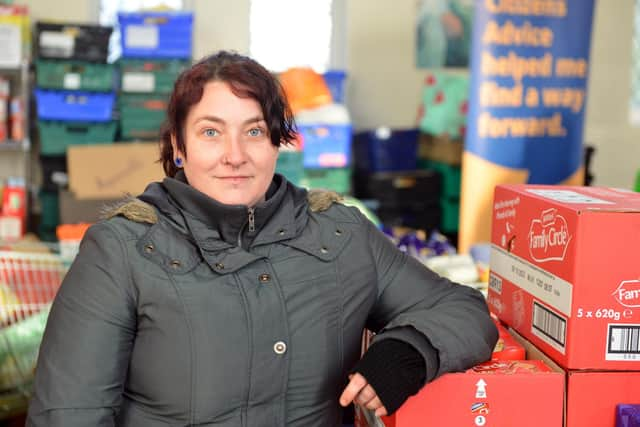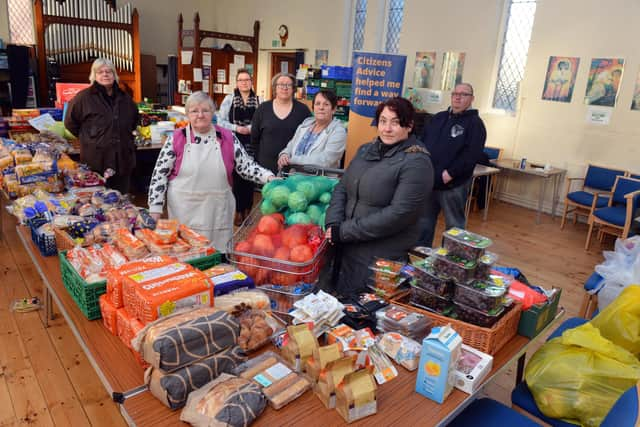'Eating or heating' – stark choice facing Sunderland and Washington residents as energy bills and National Insurance set to rise
and live on Freeview channel 276
Rising costs of living have already seen the number of people using Mickey’s Place Food Bank in Sulgrave, Washington, “double in recent weeks” and for many now dependent on the service, the energy and National Insurance increases will push them “over the edge”.
A typical household’s energy bill is expected to increase in April by 54 per cent – around £693.
Advertisement
Hide AdAdvertisement
Hide AdAt the same time, Prime Minister Boris Johnson and Chancellor Rishi Sunak have said they will plough ahead with the 1.25 per cent increase on National Insurance – even for those on low incomes of anything above £12,875 a year.
In a bid to cope, former miner Chris Palmer, 64, who’s currently on Jobseekers Allowance, has already rationed his his heating to “just one hour a day”.
He said: “I’ve two quilts on my bed but even on winter nights I can’t put my heating on, even though it’s very cold. I go to my daughter’s during the day to help with the little one but it also means I don’t have to heat my home.
"Let the politicians who make these decisions live on what we do for six months and see if they can cope. What they spend on a meal is what we have to live on for a week.
Advertisement
Hide AdAdvertisement
Hide Ad"It’s not just people out of work who are using the food bank but also people working on low incomes who will also be hit by the National Insurance increase – it shouldn’t be happening.”


Another Washington resident added: “With these increases it’s going to be a choice of eating or heating. It’s already really hard and with further increases to National Insurance and energy bills people simply aren’t going to be able to get by.”
The woman, who has had two knee replacements and is unable to work due to arthritis, has already been plunged into crisis following the removal of the £20 Universal Credit uplift payment.
She added: “That £20 made a big difference but without it there’s no way I can afford the rise in energy costs and so I won’t be putting the heating on.”
Advertisement
Hide AdAdvertisement
Hide AdLocal resident Zoe Cooper, 32, who’s currently in part-time work as a school dinner supervisor is “dreading” the impact.


Zoe, who used to rely on the food bank and now supports the initiative as a volunteer, said: “The impact is going to huge for people on benefits and low incomes.
“The National Insurance increase will be more money out of people’s pockets, which they can’t afford, and with rising energy bills it will leave them with the choice of eating or heating. Surely any increases should be on the wealthy.”
Reverend Julie Wing, who runs Mickey’s Place, has already seen a massive increase in demand and is worried the rises will make an already desperate situation even worse.


Advertisement
Hide AdAdvertisement
Hide AdShe said: “In the last few weeks we’ve seen a big increase in demand – at least double. We now have constant queues outside – and that’s before these increases come into play.
"The Government really need to rethink the National Insurance increase and ensure a system is in place to help those struggling with everyday living.”
While residents were fulsome in their praise for Mickey’s Place, Julie would rather the food bank didn’t exist.
She said: “I think food banks have become the accepted norm and this really shouldn’t be the case. Food banks are a sticking plaster, not the answer.”
Advertisement
Hide AdAdvertisement
Hide AdEven before the triple whammy of Universal Credit cuts and projected rises to National Insurance and energy prices, the region was already one of the most financially precarious in the country with 46 per cent of the region’s households with children in receipt of Universal or Working Tax Credit - the highest in the country along with Yorkshire and Humber.
Figures for Sunderland Central, Washington & Sunderland West and Houghton & Sunderland South show Universal Credit and Working Tax Credit household claimants with children in the area, coming in at 47, 51 and 49 per cent respectively.


North East Child Poverty Commission director Amanda Bailey said: “After two years of a devastating pandemic, thousands of the lowest income families across the North East are being hit by soaring household bills and a National Insurance increase – all coming at the same time as a real-terms cut to social security support, which will rise in April at just half the rate of inflation.
"Sadly, the sticking-plaster, piecemeal measures announced so far just don’t meet the scale of the challenge that’s in front of us.”
Advertisement
Hide AdAdvertisement
Hide AdIt’s a sentiment shared by Sunderland City Council’s portfolio holder for Children’s Services, Cllr Louise Farthing, who added: ”I think the decision to increase National Insurance is an easy tax to impose but it’s a dreadful decision. It will only serve to make the poor poorer.”
The Government have introduced a Council Tax rebate of £150 for property owners in bands A to D to help cover some of the projected energy bill rises and have also cited that National Insurance increases will be used to improve Health and Social Care services.
Defending their decision a Treasury spokesman said: “We’re providing £21 billion this financial year and next to help families with the cost of living, including cutting the Universal Credit taper rate to make sure work pays, freezing alcohol and fuel duties to keep costs down, and helping households with their energy bills through our £9.1 billion Energy Bills Rebate.
“The Health and Social Care Levy will benefit people across the country by tackling backlogs the pandemic has created on NHS operations and procedures, and will strengthen the adult social care system so that people don’t have to bear the financial risks of care costs themselves.”
A message from the editor:
Support your Echo and become a subscriber today.
Enjoy unlimited access to all of our news and sport, see fewer ads, experience faster load times, test your brain with daily puzzles and get access to exclusive newsletters.
Comment Guidelines
National World encourages reader discussion on our stories. User feedback, insights and back-and-forth exchanges add a rich layer of context to reporting. Please review our Community Guidelines before commenting.
